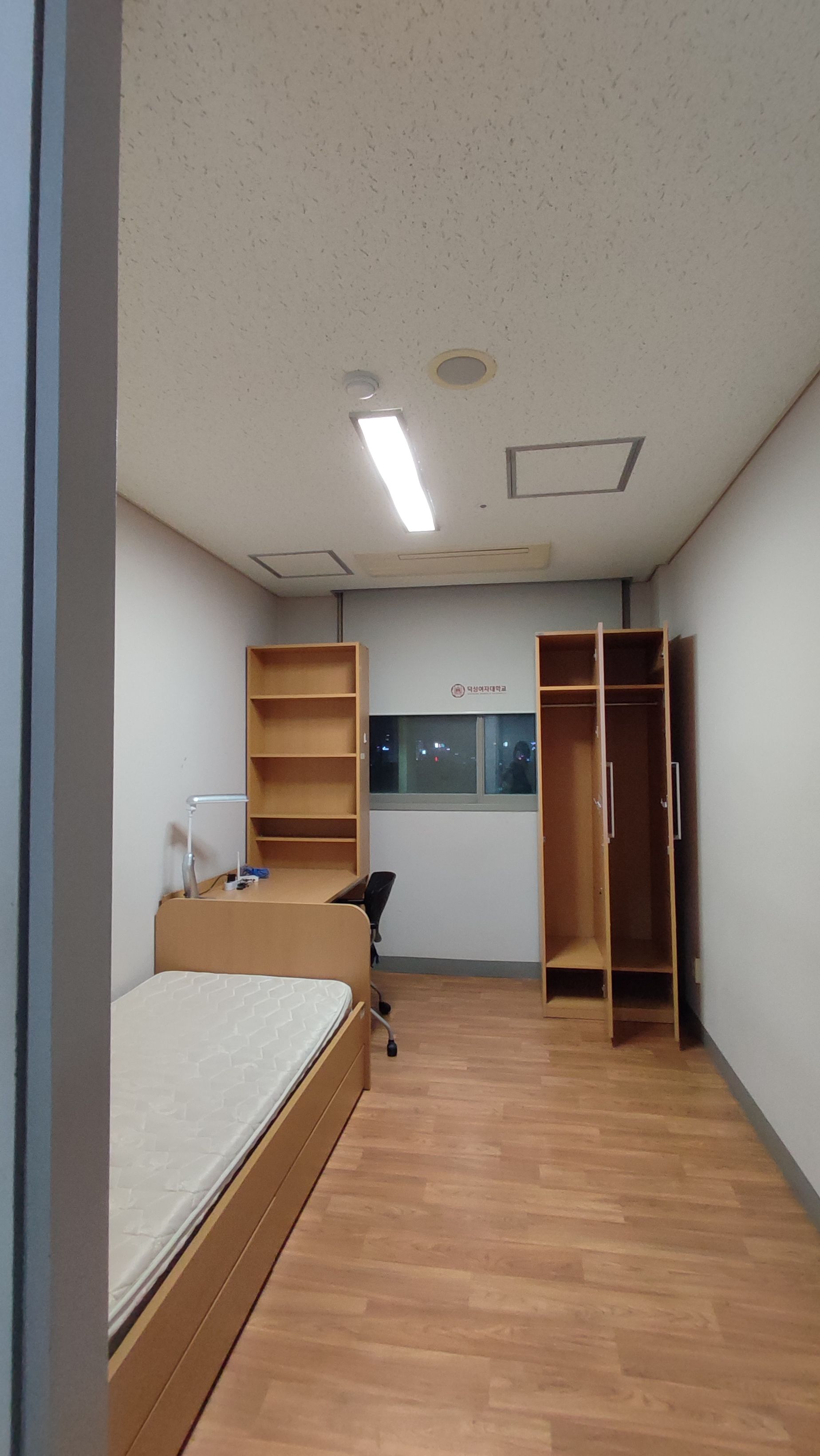- 🥈A Complete Guide to Finding a Home in Korea: Insider Tips, Expectations, and Mistakes to Avoid – A Student's Guide
A Complete Guide to Finding a Home in Korea: Insider Tips, Expectations, and Mistakes to Avoid – A Student's Guide
Hi everyone! 🌟 I’m Meen from Thailand. I moved to Korea in 2021 as a recipient of the Korean Government Scholarship (GKS) 🎓, and I've been here for about 2.5 years now. My journey started in the northern part of Seoul 🏙️, where I spent a year learning Korean at a private university's language training center 📚🗣️. In this blog, I'll share my experiences with two common housing options for students: living on campus in a dormitory 🏫 or living off-campus in a "one-room (원룸)" 🏠.
If you're interested in other types of housing in Korea, this might not be the best guide for you, but if you're exploring dorms and one-rooms, read on!

My Experience with Student Housing
In this section, I’ll share my personal experience with student housing in Korea 🏫, starting with dormitory life. If you're considering living on campus or are concerned about adjusting to a shared living situation, this part is for you!
When I first moved to Korea on a scholarship 🎓, living off-campus wasn't an option. I was required to live in the dormitory at the language center, and initially, I couldn't choose a single room 🛏️. For the first six months, I shared a room with one or two roommates 🤝, which was quite an adjustment, especially since I had lived alone for four years during my bachelor's degree. The space that really belonged to me in the room was probably around 15 square meters 🏠.
The dormitory had shared bathrooms 🚿 for the entire floor, meaning around 30 girls used the same facilities. We also shared the kitchen 🍽️ with about 15 girls. My living space had no curtain or door 🚪 to separate us, offering very little privacy.

If you’re wondering about the cost, here’s what my situation was like 💸: I paid around 250,000 won monthly, which was covered by my scholarship 🎓, for a room-for-four-people. I didn’t have to worry about a deposit or extra charges for gas or electricity 🔌. However, as part of our dorm responsibilities, we had to take turns cleaning the shared kitchen 🧽🍽️. Not all dorms in Korea will have this setup, but it’s something you should be aware of! 🛑
Is Dorm Life Right for You?
If you’re uncertain about living in a dorm and whether it suits your lifestyle, this section is for you. I know it can be hard to imagine what might make you uncomfortable until you're in the situation. To help you prepare, I've created a checklist for things to consider when evaluating dorm life. Use this checklist to assess if dorm living aligns with your preferences and needs.

Hope this helps! Now, let's say you need to have a roommate if you choose to stay on campus. I understand your concerns, so I've created a list of questions to help you determine if you're ready to live with a roommate. In this scenario, let's assume that both of you will be sharing the same bedroom and living space.

Scoring Guide:
For each question, give yourself 1 point if your answer is "Yes."
- 8-9 Points – You're well-prepared to handle the challenges of living with a roommate. You're adaptable and open to compromise.
- 5-7 Points – You might face some challenges, but you're willing to work through them. With a bit of adjustment, you can make shared living work.
- 0-4 Points – Living with a roommate could be difficult. Consider if you're ready for this experience or if you’d be more comfortable living alone.
Rules for Living with a Roommate
If you choose to stay with a roommate, the key to a peaceful coexistence is communication 🗣️. It's as simple as that. You wouldn't believe how many people end up fighting with their roommates 😅. People grow up with different backgrounds, cultures, languages, and lifestyles 🌍. Even if you're paired with a roommate from the same country, you won't agree on everything.
Setting Basic Room Policies with a Roommate 📝
The first thing to do when moving in with a roommate is to have an open discussion to set some ground rules and preferences 🏠. To help you get started, here’s a list of questions to ask each other: 🎯

I’ve learned a few things from my own experiences (and some roommate drama 😅) that can help you live peacefully together. In my opinion, there is no universal rule like "you should not do action A when living with a roommate." The only rule is: "Have you and your roommate agreed that action A is okay or not?" 🤝
For example, is talking on the phone 📱 for more than an hour in the room while your roommate is doing homework 📚 a no-go? The answer is: it depends. If your roommate is okay with it, then it's fine. If not, you need to respect their space and compromise 🙌. So, the key is to TALK, TALK, and TALK it out with your roommate 🗣️. If you've tried everything and compromise isn't working, then it's time to approach the dorm manager 🏢 or consider a room switch 🔄.
My Experience with Living Alone in a Dorm

I lived alone in a single dorm room for the last 3-4 months of my language training program 🏫. The rent was around 350,000 won monthly 💸. Honestly, when it's just you, it's pure freedom 🕊️, and I loved it. That’s when I decided that I wouldn't share a bedroom with anyone again 🛏️. If I ever have to share a living space, I at least need a separate bedroom with a door 🚪 to give myself some "me time." I learned what my standards are! ✨
For context, I'm still best friends with my former roommate 👯♀️, but living with someone is different from being besties. If you know, you know. 😉
First Day of Moving into a Campus Dorm
When moving into a dormitory on campus in Korea, most essentials are usually provided, but there's one thing you'll definitely want to buy on your first day—bed sheets and bedding. Here's a quick guide to where you can find these items, along with other essentials:
- Muji and Jaju (자주): These stores offer high-quality bed sheets and bedding 🛏️. Search for the nearest Muji or Jaju on Naver Maps or Kakao Maps 📍 and consider buying your bed essentials here for better comfort 🌟.
- Daiso (다이소): Perfect for affordable essentials and literally has everything you might need for your dorm room 🏠. Make sure to visit a larger branch for more options 🛒. It's a good idea to go to Daiso first to see if you can find what you need before heading elsewhere 👍.
- Olive Young (올리브영): This is your go-to store for health and beauty products 💄🧴. You'll love the variety here, from toiletries to skincare essentials 🛍️.
By visiting these stores in order, you can gather everything you need to settle into your dorm comfortably.
Moving from Seoul to Daejeon
After completing my one-year Korean language training program 🏫, I had to move from Seoul to Daejeon 🚆, another city in Korea, to pursue my studies at KAIST 🎓. I decided to rent a one-room apartment to live alone 🏠. I started preparing and looking for rooms 3-4 months in advance 📅. Although I speak English, my Korean was very limited, which made the search a bit challenging 😅. Here are a few things I learned from searching for a place to rent in Daejeon.

Room and Building Types in Korea
First, let's talk about room types in Korea. There are several options:
- One-room (원룸): A single room for one person
- Two-room (투룸): A larger space with two rooms for two people
- Shared House: A house shared with other occupants
As for building types, these include:
- Apartment (아파트)
- Villa (빌라)
- Room in a House: A room rented out within a larger house, shared with the landlord ("jipjuin")
Types of Room Contracts in Korea
When renting a room in Korea, it's crucial to understand the different types of contracts you may encounter. Here are the most common types:
- Jeonse (전세): A lump-sum deposit-based contract where you pay a significant amount upfront and do not pay monthly rent. At the end of the contract, the deposit is returned to you in full. There's also some risk if the landlord cannot return the full deposit at the end of the contract.
- Wolse (월세): A more traditional monthly rent system where you pay a smaller deposit compared to Jeonse (e.g., 1-10 million won) and then pay a monthly rent. Lower initial cost, which is more accessible for students and short-term residents. You have to pay monthly rent in addition to utilities, which can add up over time.
- Short-Term Rentals (단기임대): Contracts for short stays, typically 3-6 months. These are often fully furnished and may include utilities in the monthly rent. Higher monthly rent and fewer options compared to long-term rentals.
Ways to Find a Room in Korea
I found three ways to secure a room in Korea.
- Real Estate Agents (부동산): Most people go to real estate agents located in the area where they want to live 🏢. These agents usually have lists of available rooms 📋. You can visit their office and ask for a room that suits your needs 🗝️.
- Direct Contact: Another way is to visit the area you want to live in, look at the buildings, and find one you like. If the building has an available room, there will typically be a sign outside with pictures, contact information, and room details. You can call the number, get the building passcode, and check the room yourself. However, this method requires a high level of trust, so it may be easier for native Koreans.
- Through Friends: The third way is to ask friends or acquaintances who are about to move out of their rooms. This method is quite reliable because you can get a direct review of the room and building management from the current tenant.
My Initial Room Search
At the beginning of my search, I traveled from Seoul to Daejeon by train to tour rooms with a real estate agent. My friend found this agent through one of the mobile apps for house hunting. Here are some of the apps/ sites you can use to search for housing in Korea:
- Naver Real Estate (네이버 부동산): https://m.land.naver.com/index
- Zigbang (직방): https://www.zigbang.com/
- Dabang (다방): https://www.dabangapp.com/
Challenges and Lessons Learned
Unfortunately, my room touring experience with a real estate agent 🏢 was not very successful due to language barriers 🗣️🚫. I requested to see rooms larger than 20 square meters, but the agent said none were available on his list 📋. A week later, I returned to Daejeon, walked around the area near my university 🏫, and visited a few real estate agents on my own. However, the language barrier made it difficult to communicate, and most people told me that no rooms were available 🛑.



